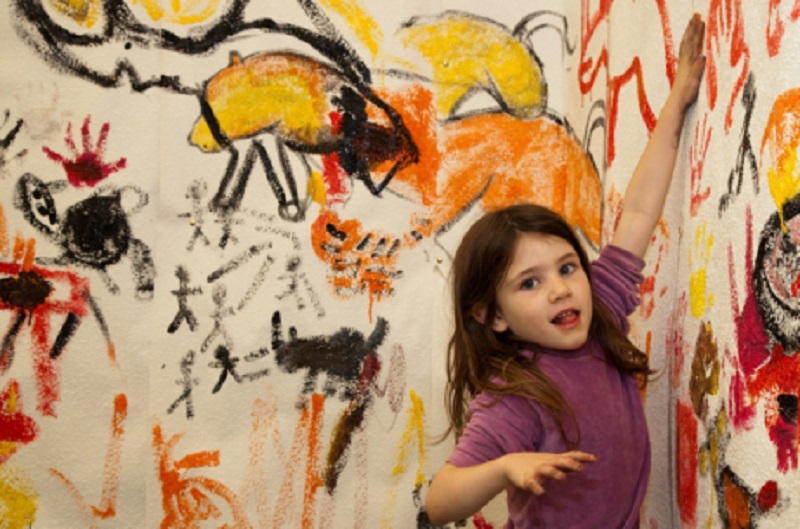
Jessica Cooney is doing an internship with the organisers of the Festival.
The Cambridge Festival of Ideas, a celebration of the Arts, Humanities and Social Sciences, launches today and a Gates scholar has been working behind the scenes to help it all run smoothly.
Jessica Cooney [2009], who is studying for a PhD in Archaeology, got involved with the Festival, which runs from 19 to 30 October and is teeming with over 160 mainly free events, after her supervisor suggested she apply for an internship in the University's Office of External Affairs and Communications. Jessica had previously expressed a great interest in public outreach events and wanted to learn how these are run. She says she hopes to run similar events in the future and to write about her own research in a more accessible way.
She had been participating in the Festival since she began her PhD, running the cave art booth at Prehistory Day, an event designed to interest children in her subject, archaeology, but she started doing her internship at the end of August.
Much of the work she has been directly involved in has been about publicising the festival. For instance, she has written news articles about festival events and participants which have been published online through the Cambridge University research gateway. She has also written press releases and contacted various outlets to further promote the Festival.
She says the internship has taught her a lot about public engagement. “I’m not an ‘academia for academia’s sake’ person,” she says. “I believe that what researchers do should be available to the public. Working closely with the Festival I’ve come to realise how many interesting and important projects there are.
“I think it’s important to do this public outreach not just to share research, but also to show everyone what amazing work is being done – with the looming budget and funding cuts, especially to the Arts, Humanities, and Social Sciences, it’s more important than ever that non-academics are involved in and appreciate the work that’s being undertaken. So much knowledge about our world would be lost if no one studied these areas, but also it will be lost if no one but academics share it.”
The Festival includes a huge host of activites, from debates on Internet freedom and the Arab Spring to exhibitions, a screening of Tim Minchin's Storm and interactive workshops, and those taking part include Richard Dawkins, children's authors Marcus Sedgwick and Charlie Higson, Richard Sennett and Cambridge academics such as Brendan Burchell, Michael Scott, Glen Rangwala and David Runciman.












